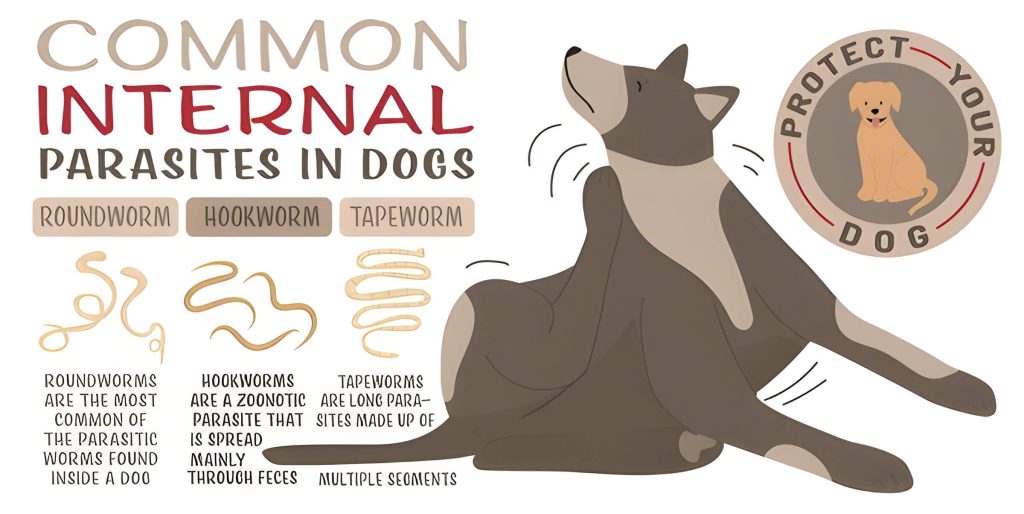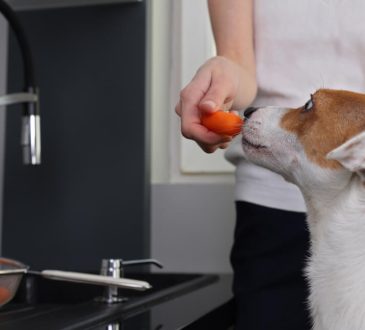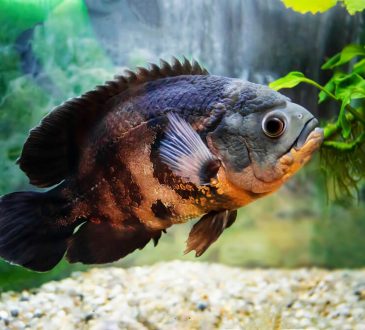
Hookworms are serious parasites that can severely impact a dog’s health by causing anemia and other issues. These blood-sucking worms live in the intestines. Dog owners should understand hookworm lifecycles, recognize symptoms, and know transmission methods. This guide covers symptoms, treatment options, and prevention through proper diet and hygiene practices to protect your dog from these harmful parasites.
What Are Hookworms and How Do They Affect Dogs?
Hookworms are a type of intestinal parasite that can cause significant health issues in dogs. Understanding the nature of these parasites and their impact on canine health is crucial for responsible pet ownership. Hookworms in dogs, specifically Ancylostoma caninum, latch onto the intestinal lining and feed on the host’s blood, leading to various symptoms and complications.
The lifecycle of a hookworm begins when eggs are passed through an infected dog’s feces into the environment. These eggs hatch into larvae, which can survive in soil or other surfaces. Dogs typically become infected by ingesting these larvae or through skin penetration, particularly via their paws. Once inside the host, the larvae migrate to the intestines where they mature into adult worms.
Canine hookworm infection can manifest through symptoms such as diarrhea, weight loss, anemia, and lethargy. Puppies are particularly vulnerable due to their developing immune systems and smaller blood volume. Severe infestations can lead to life-threatening conditions if not promptly addressed.
Preventing hookworm infections involves regular deworming treatments prescribed by veterinarians and maintaining good hygiene practices to reduce environmental contamination. Monitoring your dog’s health closely for any signs of parasitic infection is essential for early detection and treatment.
Understanding hookworms and their effect on dogs is vital for maintaining your pet’s overall health. By staying informed about dog parasites like hookworms and adhering to preventive measures, you can ensure a healthier life for your furry companion.
Common Symptoms of Hookworm Infestation in Dogs
Hookworm infestation in dogs is a serious health concern that pet owners need to be aware of. Recognizing the common symptoms early can make a significant difference in the treatment and recovery process. One of the primary hookworm symptoms in dogs is anemia, which occurs due to the blood-sucking nature of these intestinal parasites. Dogs suffering from anemia may exhibit signs such as lethargy, pale gums, and weakness.
Another notable symptom is diarrhea, often accompanied by blood or mucus. This gastrointestinal distress can lead to weight loss and poor coat condition, signaling that something is amiss with your pet’s health. Additionally, you might notice your dog experiencing coughing or respiratory issues if the hookworms have migrated to their lungs.
It’s also important to watch for signs of skin irritation or itching around the paws and belly area, as hookworm larvae can penetrate the skin. These indicators are crucial for early detection and effective treatment of hookworm infestations in pets. If you observe any of these symptoms, it’s essential to consult your veterinarian promptly for proper diagnosis and treatment options.
How Do Dogs Get Infected with Hookworms?

Hookworms are a common parasitic threat to dogs, and understanding how they get infected is crucial for effective prevention and treatment. The primary causes of hookworm in dogs stem from various modes of transmission that allow these parasites to enter a dog’s system.
One of the most common ways dogs get hookworms is through direct ingestion. This can happen when a dog consumes contaminated soil, water, or fecal matter that contains hookworm larvae. Puppies are particularly susceptible as they often explore their environment by chewing and licking objects on the ground.
Another significant mode of transmission is through skin penetration. Hookworm larvae present in contaminated soil can burrow through a dog’s skin, typically between the toes or on the belly, and migrate into the bloodstream. This type of infection is more likely to occur in areas with poor sanitation where dogs frequently come into contact with infested environments.
Additionally, puppies can acquire hookworms from their mothers either through placental transfer before birth or via nursing post-birth. The larvae can migrate to the mammary glands and be passed on during breastfeeding.
Understanding these transmission pathways helps pet owners take preventive measures such as maintaining clean living conditions for their pets, regularly deworming them, and practicing good hygiene to minimize exposure to potential sources of infection. By staying informed about how dogs get hookworms, owners can better protect their furry friends from this pervasive parasite.
Identifying Hookworm Infections in Dogs
Diagnosing hookworm infections in dogs is a crucial step in ensuring the health and well-being of your furry friend. The process typically begins with a visit to the veterinarian, who will conduct a thorough examination and gather a detailed medical history. One of the primary methods for diagnosing hookworms in dogs is through a fecal exam for worms. This involves collecting a small sample of the dog’s stool and examining it under a microscope to identify the presence of hookworm eggs.
Veterinary diagnosis for parasites like hookworms often includes additional tests if necessary, such as blood work to check for anemia or other related conditions caused by these parasites. Early detection through these diagnostic methods allows for prompt treatment, which is essential in preventing severe health complications. Regular veterinary check-ups and fecal exams are recommended as part of your dog’s routine health care to catch any parasitic infections early and ensure effective management.
Treatment Options for Hookworm Infections in Dogs
Hookworm infections in dogs can pose serious health risks, making it essential for pet owners to understand the available treatment options. The primary method of hookworm treatment for dogs involves deworming medications specifically designed to eliminate these parasites. These medications are typically administered orally and work by targeting the hookworms within the dog’s intestines, effectively killing them and allowing them to be expelled from the body.
Several deworming medications for pets are available on the market, including popular choices such as pyrantel pamoate, fenbendazole, and milbemycin oxime. Each of these drugs operates differently but shares a common goal: to eradicate hookworms and prevent further infestation. It’s crucial for pet owners to follow their veterinarian’s instructions regarding dosage and frequency of administration to ensure the effectiveness of the treatment.
In addition to deworming medications, comprehensive anti-parasitic treatments for canines may also be recommended. These treatments not only target hookworms but also address other common parasites such as roundworms, tapeworms, and whipworms. By using a broad-spectrum anti-parasitic approach, veterinarians can help safeguard dogs from multiple threats simultaneously.
Regular veterinary check-ups play a vital role in monitoring the success of hookworm treatment and preventing future infestations. Pet owners should maintain good hygiene practices in their homes and outdoor environments to minimize exposure risks. By staying informed about effective treatment options and working closely with their veterinarians, dog owners can ensure their furry friends remain healthy and free from hookworm infections.
The Importance of Preventing Hookworm Infestations in Your Dog
Hookworm infestations in dogs are a serious health concern that can lead to severe anemia, weight loss, and even death if left untreated. Understanding the importance of preventing hookworms in dogs is crucial for every pet owner. One of the most effective ways to safeguard your canine companion from these parasites is by adhering to a regular deworming schedule for pets. Regular deworming helps eliminate any existing hookworms and prevents new infestations from taking hold.
In addition to regular deworming, there are several canine parasite prevention tips that can help keep your dog safe. Keeping your dog’s living environment clean and free from fecal matter significantly reduces the risk of hookworm exposure. Always dispose of dog waste promptly and avoid areas where other dogs frequently defecate.
Another key aspect of preventing hookworms in dogs is ensuring they receive proper nutrition and healthcare. A well-balanced diet strengthens their immune system, making them less susceptible to parasitic infections. Regular veterinary check-ups allow for early detection and treatment of any potential issues before they become severe.
By following these preventive measures, you can greatly reduce the risk of hookworm infestations in your dog, ensuring they remain healthy and happy throughout their life.
The Role of Diet and Hygiene in Managing and Preventing Parasites
Maintaining a clean environment and a healthy diet for your pets is crucial in managing and preventing parasites. A well-balanced diet to prevent hookworms in dogs, for instance, can significantly enhance their immune system’s ability to resist infections. Foods rich in essential nutrients such as vitamins, minerals, and proteins help build a robust immune response that can ward off parasitic invasions.
Hygiene plays an equally vital role. Implementing hygiene tips to avoid pet parasites involves regular cleaning of your pet’s living area, timely disposal of feces, and ensuring that their bedding is washed frequently. A clean environment for parasite prevention also means keeping the outdoor areas free from waste where parasites might thrive.
Moreover, regular grooming practices such as bathing your pet with appropriate shampoos and keeping their coat well-maintained further reduce the risk of parasite infestations. Combining these hygiene practices with a healthy diet fosters an overall resilient immune system in pets, making them less susceptible to parasites like hookworms.
In summary, by focusing on both diet and hygiene, pet owners can create an effective strategy to manage and prevent parasitic infections. This holistic approach not only enhances the health of pets but also contributes to a cleaner living environment for everyone involved.
Conclusion- Keep Your Dog Safe from Hookworms with Consistent Care and Vigilance
Ensuring your dog remains free from hookworms requires a combination of regular veterinary check-ups, preventive medications, and attentive care. Hookworms are a common parasitic threat that can cause significant health issues for dogs if left untreated. By maintaining a consistent schedule of deworming treatments as recommended by your veterinarian, you can effectively prevent these parasites from taking hold.
Regular fecal examinations are crucial in detecting hookworm infections early. These tests allow veterinarians to identify the presence of hookworm eggs in your dog’s stool and take immediate action to treat the infection. Additionally, keeping your dog’s living environment clean and free of fecal matter reduces the risk of reinfection.
Another key aspect is monitoring your dog’s behavior and health closely. Symptoms such as weight loss, diarrhea, or lethargy could indicate a hookworm infection or other health concerns that require prompt attention. By staying vigilant and responding quickly to any signs of illness, you can protect your dog’s well-being.
The best way to keep your dog safe from hookworms is through proactive measures including regular veterinary visits, preventive treatments, cleanliness, and attentive care. By doing so, you ensure a healthier and happier life for your furry companion.




